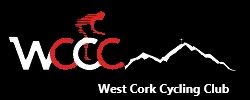WCCC Club Essentials
Bike
Members are advised to ensure their bikes are in perfect mechanical order prior to each ride. New members should ensure that their wheels have quick release skewers. All members are requested to use mudguards in wet weather as a courtesy to their club mates. Mudguards are compulsory during the period November-March.
Only drop bar road bikes are permitted on WCCC rides. This is a standard policy across most clubs, as flat bars may become entangled with drop bars when running side by side, with horribe consequences. So no flat bar bikes allowed. This eliminates hybrids and mountain bikes. TT bikes are also not permitted on group rides. If your road bike has tri bars installed, remove them for club rides please, so you don't end up spearing a club mate.
Novice riders typically start with flat pedals, with or without toe cages. In due course, riders will progress to clipless pedals (which paradoxically you clip into). There are several types. Most WCCC riders use SPD-SL or Look type pedals, although several prefer SPD pedals for routine spins as these do not get damaged when walking around.
Some sort of bicycle computer can be useful. Basic computers show distance travelled, and speed (current and average). More advanced types include metres climbed and cadence. The latter can be invaluable to those looking to up their game. Top of the range systems use GPS, and can show additional information such as heart rate. It's all down to personal preference. The general consensus is that any improvement programme will greatly benefit from use of real time data when on the bike.
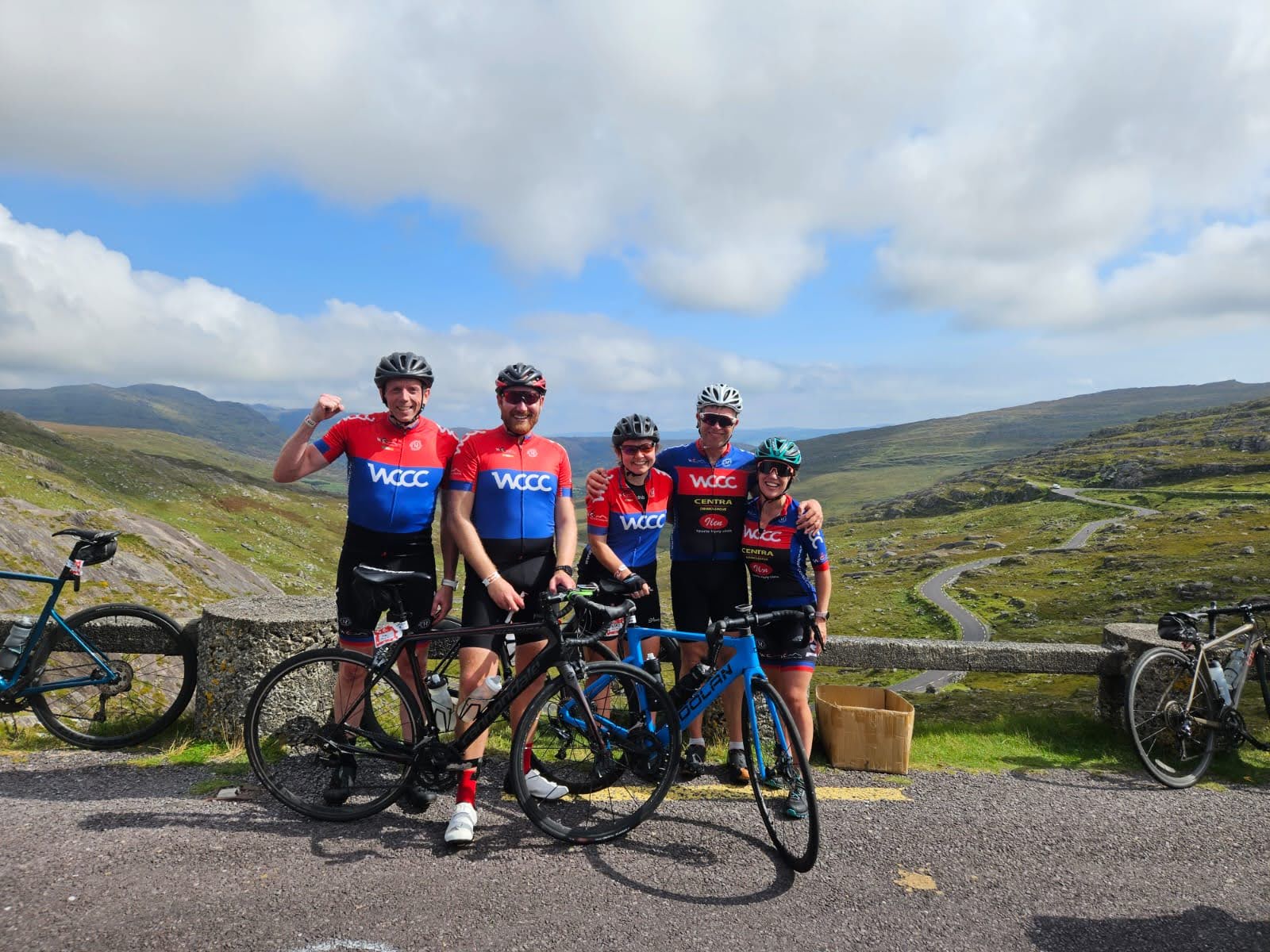

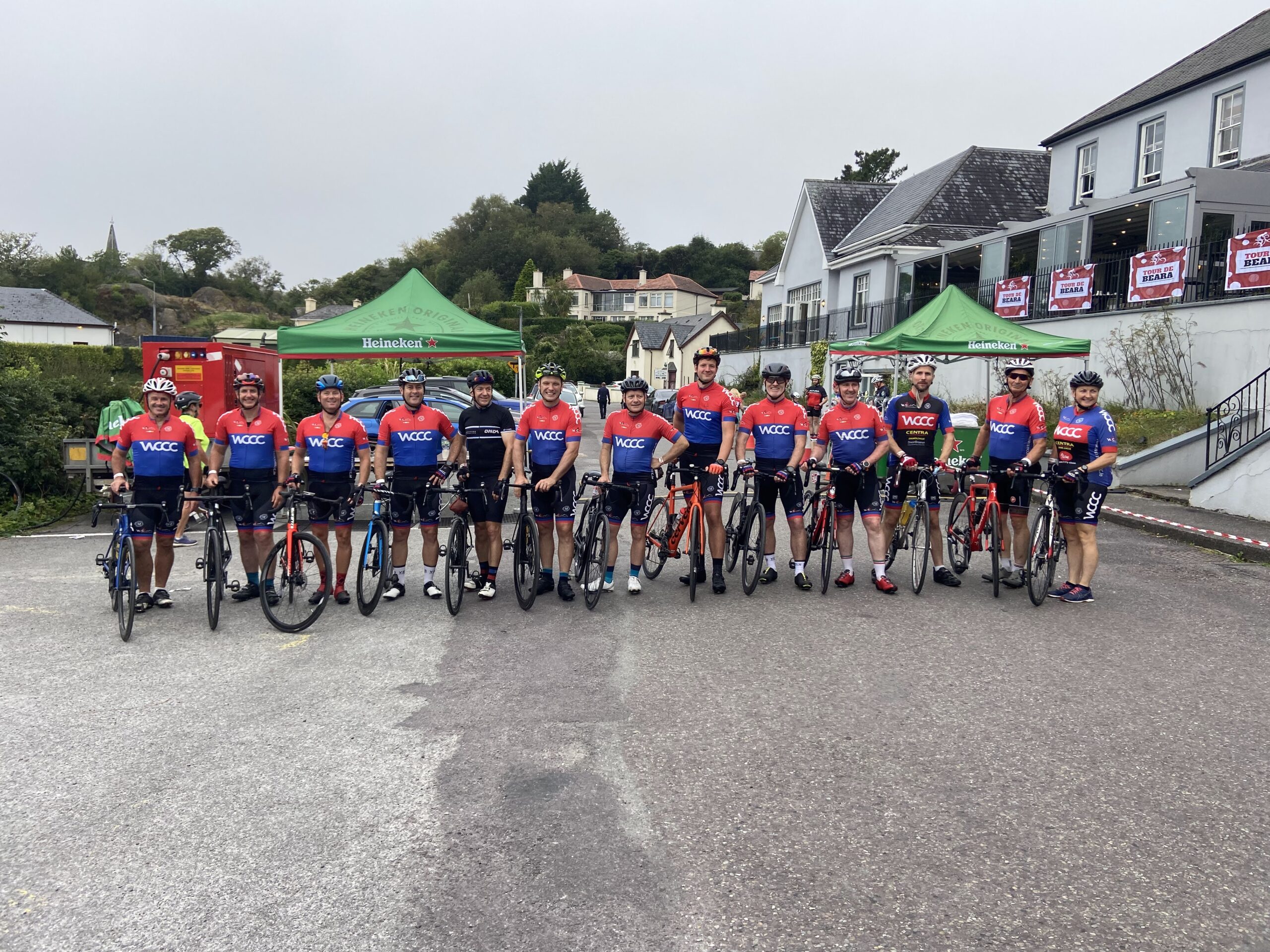
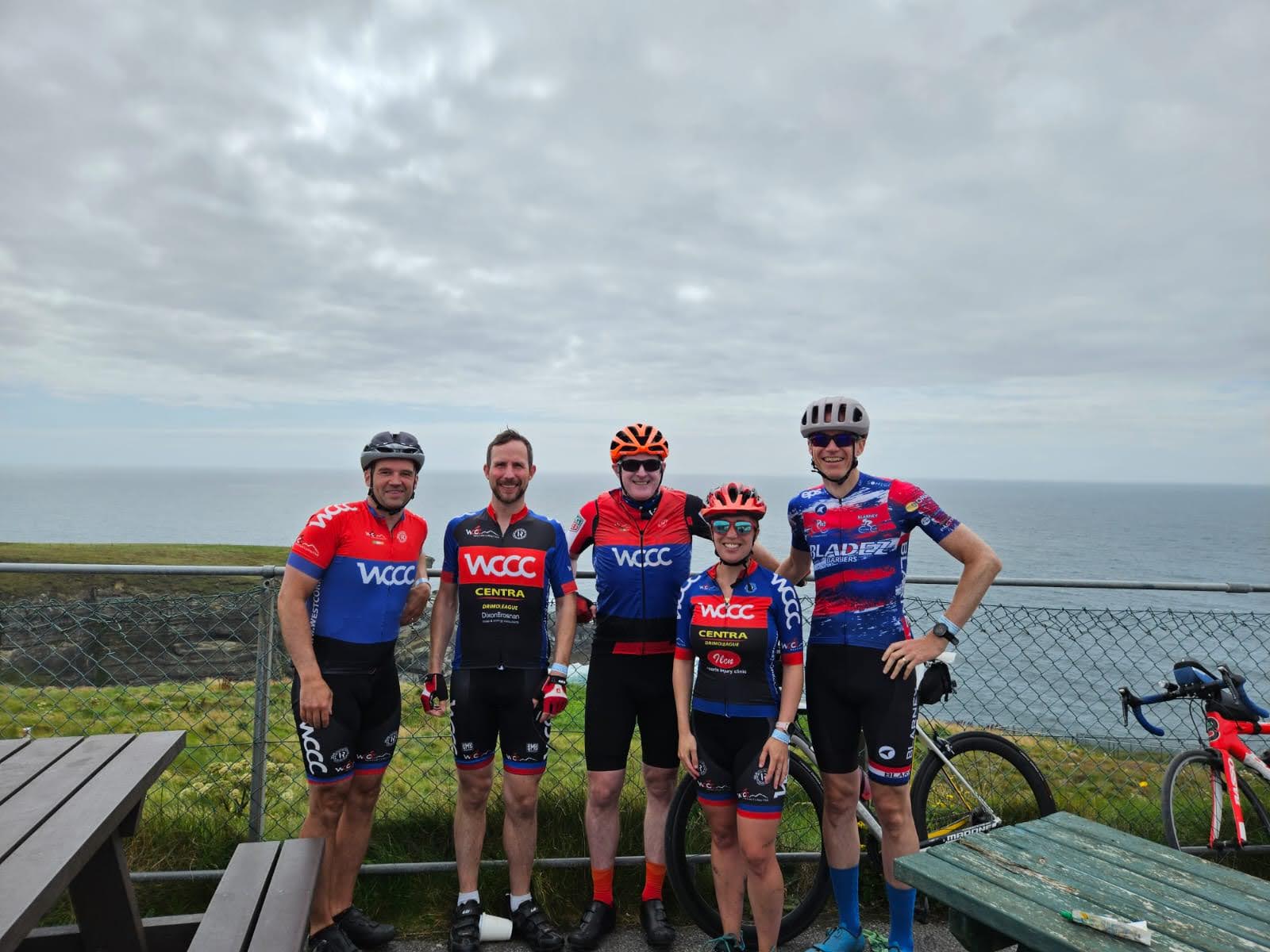
Accessories
On every spin, members are required to bring the following:
Pump
Ensure it is suitable for your valve type. And, for the love of God (or whoever you believe in), try out the pump at home first. Many of them are useless, and discovering this fact is no good when you are 60 km from home.
Tube
At least one spare tube. If you have the space, a second tube is no harm. Ensure the valve type on your tube matches your pump.
Tyre levers
Ever try getting a tyre off with your bare hands? Or your teeth?
Money
A small of amount will do, for the coffee stop.
Phone
Very useful to coordinate groups, and essential in an emergency.
Lights
Members are obliged to use front and rear lights during evening rides. It is recommended that the rear light is also used during daytime winter spins.
Optional
If you have room, a small multitool may come in handy.
Apparel
First and foremost, a good quality helmet is mandatory. Even a minor fall at say 10 km/h may cause a nasty head injury without a helmet. Helmets have saved many lives. You will not be left anywhere near a WCCC ride without one. Try to make sure it's a presentable looking helmet too - no motorbike type things that make you look like a mushroom please. We're trying to look cool here.
Clothing is all down to personal preference. Riders are advised to check the weather forecast before coming out. Depending on temperature, precipitation, wind speed, cloud cover and expected pace, your clothing requirements will vary. You may need a base layer, intermediate layer, neck buff, head scarf, arm warmers, leg warmers, bib tights, jacket, or foldaway rain jacket. You may want to upgrade the fingerless gloves to full gloves in winter.
Members should dress appropriately for the weather. If you get cold, you will seriously struggle. If you get wet, it is inevitable that you will get cold unless you are properly attired. With experience, your kit selection process will become easier each time. New riders may be horrified at the rate of expansion of the kit wardrobe, but that's the way it is.
All members are requested to wear club kit on spins, whether solo or on group rides. Let's show it off! With respect to appearance, members should also bear in mind the Velomati Rules (you'll find them online). We didn't write them. The Rules just ARE.
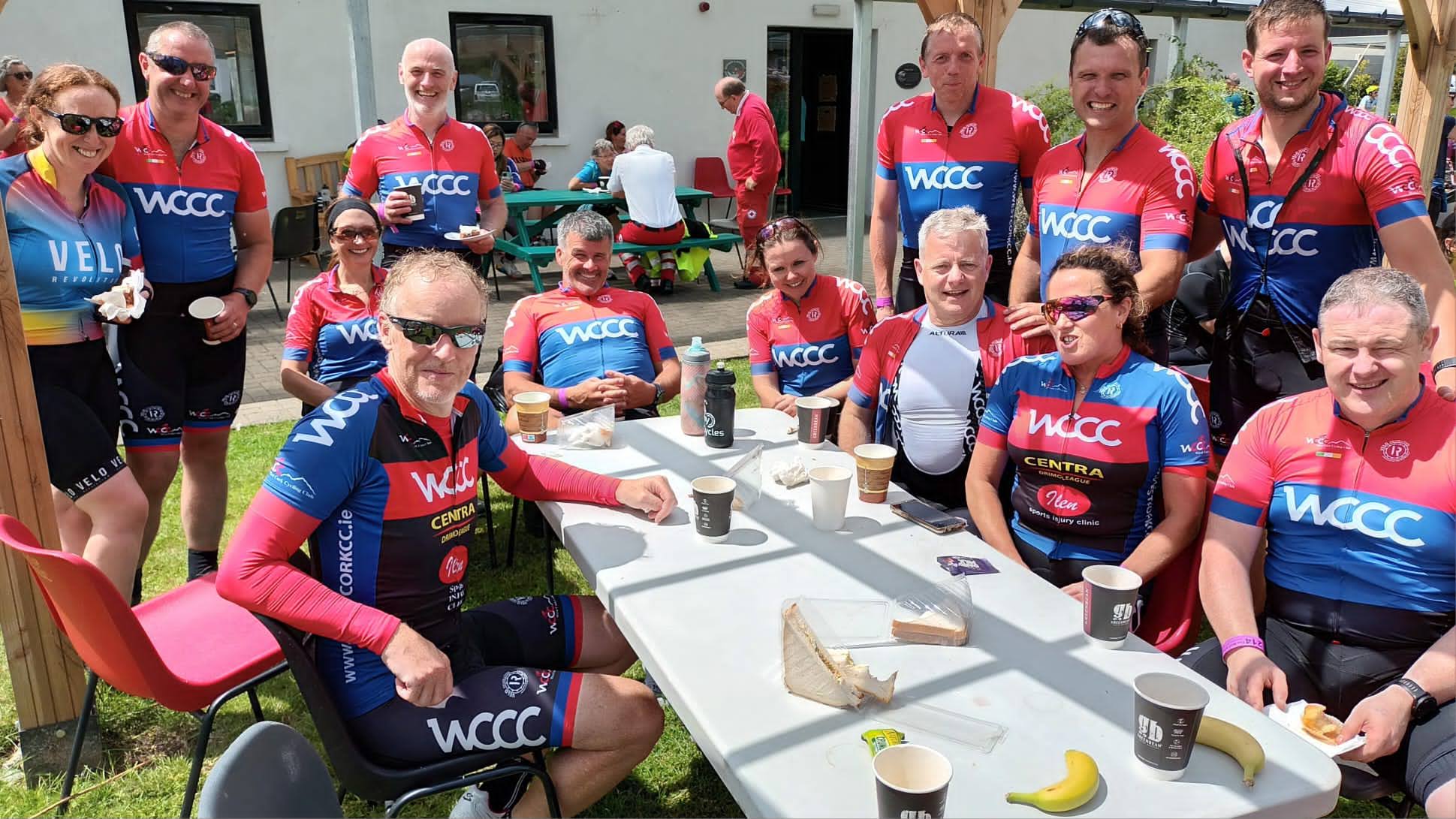

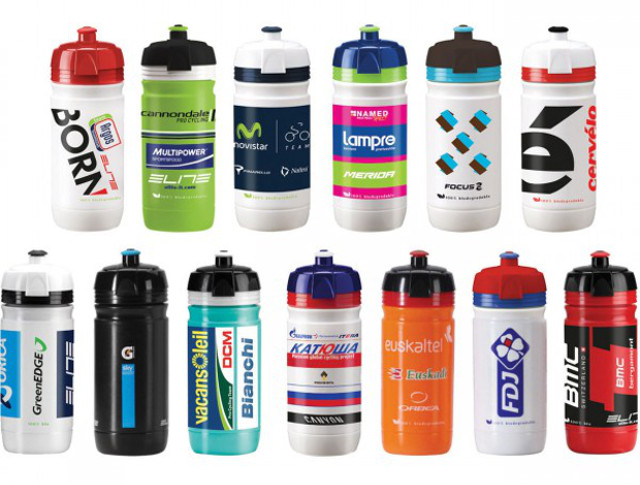
Fuel
Most group spins are usually accompanied by a coffee stop. Many riders like to take food with them to nibble while on the move. Some take a banana, others take cereal bars. Several members bring jellies (new members note: jellies MUST be offered around). One member swears by the humble fig roll. Even if you don't expect to eat any food on the go, it is recommended that you bring something small for emergencies, such as a gel or chocolate.
Water or a sports drink is essential for your spin. One of the first skills a novice rider should practise is sipping water while moving. The web abounds with information on how much water a rider should consume. One bidon every 30-50 km is a reasonable guide, but it is very much down to personal preference. Many members like to add electrolytes or carb/protein mixes to their bidons. The only guidance which WCCC HQ recommends here is that you carry two bidons on rides longer than 60-70 km.
